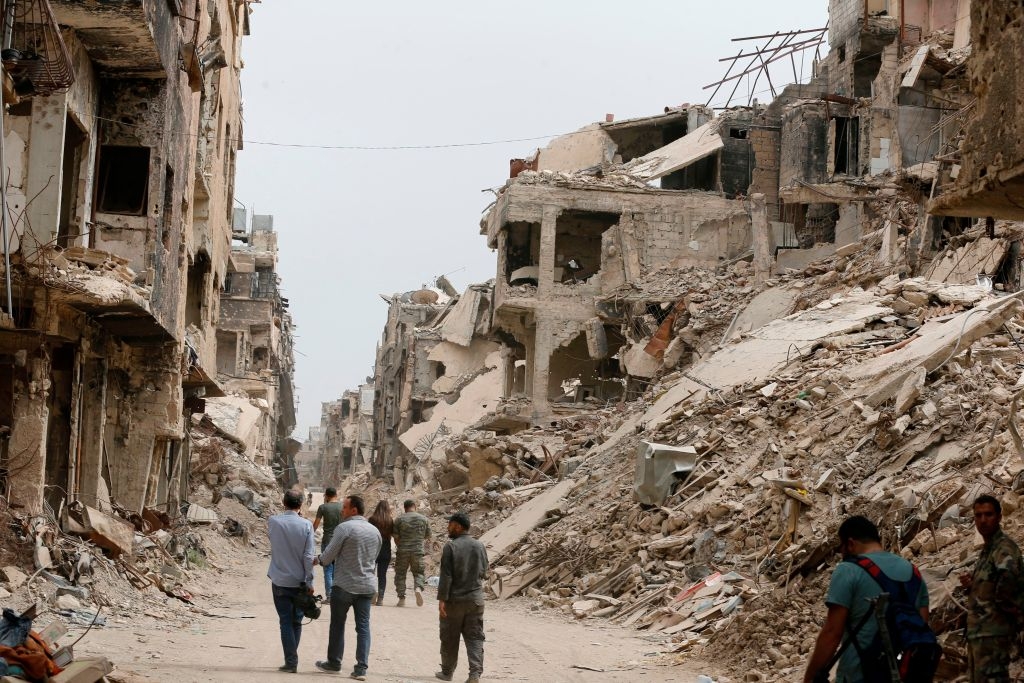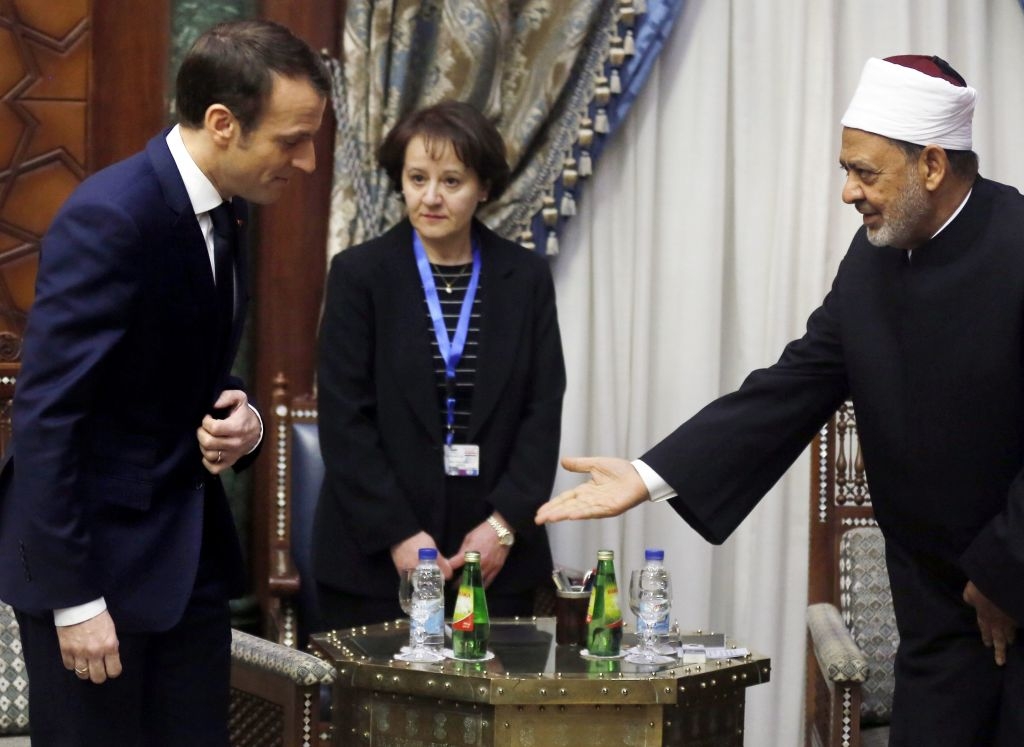In this mailing: - Khaled Abu Toameh: Palestinians: Victims of an Arab Country
- Tawfik Hamid: Defining 'Metrics' to Measure Radical Islam is Vital to Defeating It
by Khaled Abu Toameh • January 21, 2021 at 5:00 am Like most Arab countries, Syria denies citizenship to Palestinians. Children born in Syria to fathers who are Palestinian nationals are considered Palestinians, not Syrian nationals. Palestinian leaders see no evil or wrong-doing when their people are being killed, injured, displaced, arrested and tortured in an Arab country. The attention of these leaders is solely focused on Israel, which they denounce day and night not only for what it does, but also for what it does not do. On January 9, Abbas entered the 17th year of his four-year term. He is again talking about his desire to hold new elections. This charade is played at least once or twice a year so that people will believe that he really wants elections. The Palestinians do not need new elections. They need new leaders who will guide them out from their longstanding morass into a future of promise and peace.
 Fighting between the Syrian army and opposition groups in the Yarmouk refugee camp (once home to approximately 160,000 Palestinians) ended two years ago, but only 435 families have been permitted to return to their homes. Pictured: Yarmouk refugee camp, near Damascus, on May 22, 2018, days after Syrian government forces regained control. (Photo by Louai Beshara/AFP via Getty Images) As Palestinian leaders condemn Israel almost on a daily basis, they continue to ignore the ongoing suffering of Palestinians living in a number of Arab countries, especially Syria. Since the beginning of the civil war in Syria in 2011, 4,048 Palestinians have died – but Palestinian leaders hardly seem to notice. Another 333 Palestinians have gone missing, while 1,797 are being held in prisons controlled by the regime of Syrian President Bashar Assad. Like most Arab countries, Syria denies citizenship to Palestinians. Children born in Syria to fathers who are Palestinian nationals are considered Palestinians, not Syrian nationals. Palestinian leaders who meet on a regular basis in the West Bank city of Ramallah seldom discuss the tragedy that has befallen their people in Syria. Similarly, the leaders of Hamas in the Gaza Strip, who relish giving interviews to the media, seem oblivious to the existence of Palestinians in Syria. Continue Reading Article by Tawfik Hamid • January 21, 2021 at 4:00 am Al-Azhar, the most respected Islamic university and organization in the Sunni world, is not – by their own definition – a terrorist organization. Yet the question remains. Is al-Azhar truly moderate, or could it be radical? If we fail to establish clear definitions, we can create chaotic situations that result in our asking radical institutions to help us counter radicalism. It is notable in this context to mention that French President Emmanuel Macron met with the Grand Imam of Egypt's Al-Azhar University, Ahmed Al-Tayeb, and called for all French imams to be trained at the Al-Azhar religious institution. The President of France probably has asked for this form of training without determining if Al-Azhar itself was a radical organization or a moderate one. Other metrics of Islamic radicalism such as accepting child marriage, considering the lives of Muslims to be more precious than the lives of non-Muslims, and accepting force or violence to impose Islamic religious values upon others can be also included. Based on these metrics, if any person or Islamic organization fails to reject such abhorrent ideological values, they should not be called moderates. Instead, they should be called what they are: Islamic radicals. We urgently need to detect and expose ideological radicalism before it turns – as it inevitably will – into acts of terrorism.
 French President Emmanuel Macron met with the Grand Imam of Egypt's Al-Azhar University, Ahmed Al-Tayeb, and called for all French imams to be trained at the Al-Azhar religious institution. The President of France probably has asked for this form of training without determining if Al-Azhar itself was a radical organization or a moderate one. Pictured: Macron (left) pays a visit to Tayeb at Al-Azhar University in Cairo on January 29, 2019. (Photo by Amr Nabil/AFP via Getty Images) Since the September 11, 2001 attacks by 19 radical Islamists, the main response by many governments – as well as the United States – has been conducting direct, kinetic warfare to fight the threat of Islamic terrorism. No doubt there is a need to use kinetic force to fight militant jihadists; however, failing to fight the ideology that drives them ensures an endless supply of such individuals who will fight eternally against what they believe are infidels. Things get more complicated when we realize that what we call radical Islam is not clearly defined – there are no standard metrics by which to measure it. In other words, we are fighting an undefined enemy. It is like fighting or trying to treat diabetes without applying metrics to the disease to determine who is diabetic and who is not, and who has improved with treatment. Continue Reading Article |
|
|
No comments:
Post a Comment